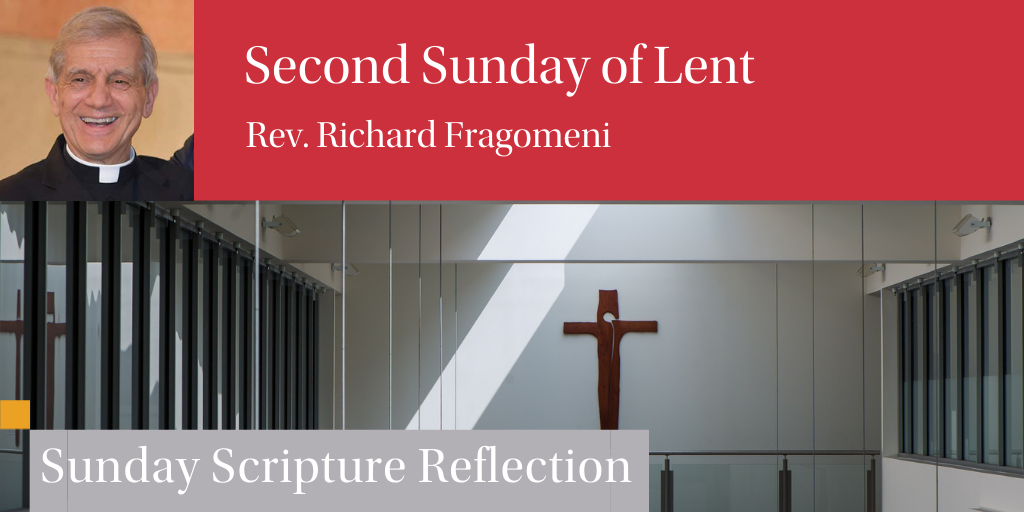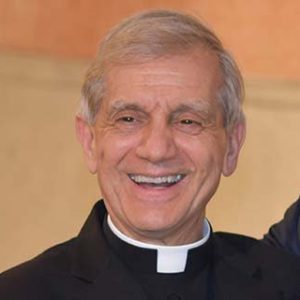

Readings:
Reading I: Genesis 15: -12, 17-18
Psalm: 27: 1, 7-9, 13-14
Reading II: Philippians 3:17-4:1
Gospel: Luke 9: 28b-36
“Glimpsing Easter on the Second Sunday of Lent”
Words have always fascinated me.
The shape of words; the liquidity of meaning-generated-sound; the nuances of a voice tone; the heart response words provoke. All very personal perennial attention getters for me.
Most of all, the history of words has intrigued my imagination. Etymology is the academic term. This word basically means that all words have a story.
In common sense language: all words are made up. They are created by someone, some culture, some community, some lexicographer, some necessity, at some place and some time.
In fact, so intrigued, that the first book I ever purchased was the Etymological Dictionary of the English Language by Rev. Walter W. Skeat.
Because words are made up, they can be re-made up, shift significance and reference.
A word can mean one thing now, in this context and usage, and another thing then, in a different context and usage.
Awesome is an awful example of this dynamic.
Presently, we use the word awesome to describe any manifestation of awe, that is, an experience of wonder, thrill, luminosity. It can be used about any noun: place, thing or person. “That view from our hotel is awesome.” “Did you hear her music? Awesome.” You look awesome.”
Etymologically, however, there is an older word in English: Awful. Or, full of awe. In fact, the word Awful used to mean what the word Awesome now means. Today, unfortunately, the word awful means terrible, nasty, very bad, unpleasant. In the past, it meant to be full of awe, breathtakingly wonder-full. Now, nasty.
So, I ponder: how is it that we are thrilled by some awe and disgusted, now, by the fulness of awe? Why has there been such a qualitative shift to the experience of awe? In the meaning of words? We settle for some awe and distain the fulness of awe. Our words indicate something of our hearts desire.
So, why this shift?
Here is my guess.
Perhaps, for us Christians, we have forgotten that we have “our citizenship in heaven, and from it we also await a savior, the Lord Jesus Christ.”
It seems, as Saint Paul notes, that now our minds are preoccupied with earthly things. We stand firm in senseless fascinations.
We find awe in a leather ball thrown around in a stadium, and disgust in the leathery face of a homeless person, the homeless Christ.
Because of light and air pollution in our cities, we cannot look up and count the stars any longer. We become jaded to the vastness of our cosmos.
Our reduction of awe distances us from our covenant-making God. We reduce creation to banality and commodity. Awe becomes some-what.
And still, with Abraham and Sarah, God summons us into the beauty that envelops us for generations, as vast as the number of the galaxies. We are stardust made conscious of awe. We are wonder-fully made.
And still, we miss Moses and Elijah.
And still, we miss the New Humanity, transfigured before our eyes.
We gaze in tedium only on the old humanity, besieging cities and villages, in senseless war. It colludes with the principalities and powers of an antiquated mechanism of violence.
Russia invades the Ukraine and the senseless carnage is awe-less.
Then a voice speaks,
a cloud talks a living word on a holy mountain,
a numinous proclamation tells us to hear,
to listen, and to be taken by the
chosen One of God.
Taken into the citizenship of the New Humanity, brighter than any detonation of nuclear sin. Vaster than the imagination can perceive.
The fulness of Incarnation is transfigured before our eyes…we are ravished with awe and the fulness of life, Christ our God.
Summoned we are into the mystery of light:
humanity divinized –
divinity humanized.
At such a vision, will we settle for only some awe?
Professor of Liturgy and Preaching
Chair, Department of Word and Worship